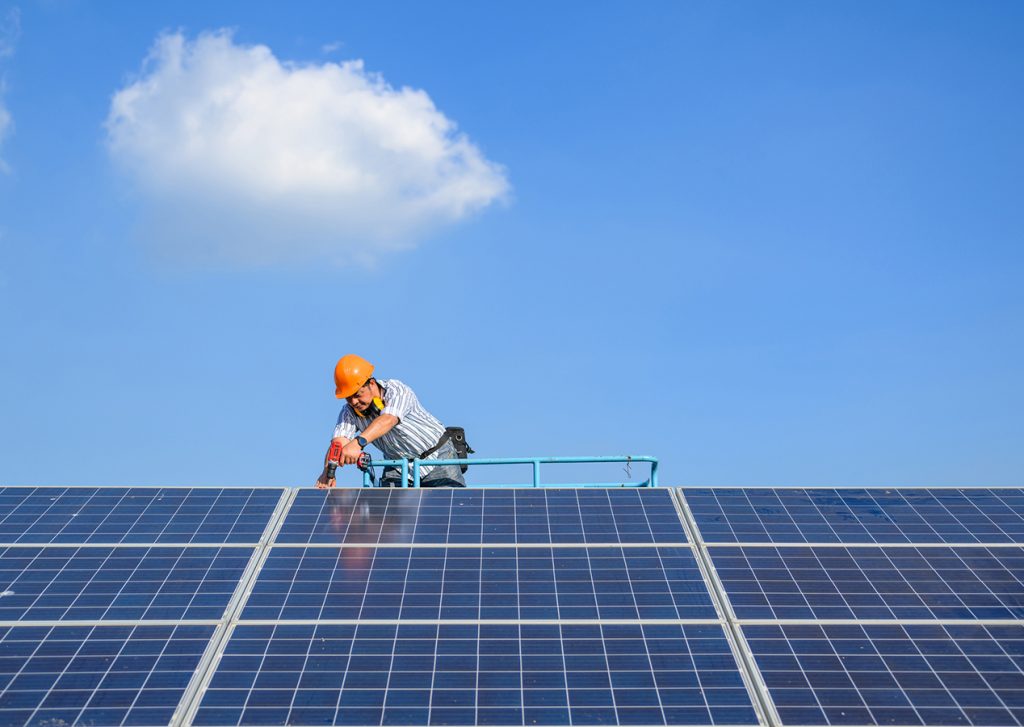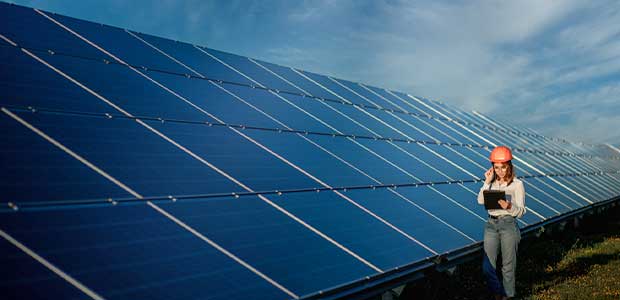Just How Solar Power Can Assist You Save Money and Reduce Your Carbon Impact
The integration of solar power into your energy portfolio presents an engaging possibility for both economic cost savings and ecological stewardship. By using the sunlight's power, house owners can dramatically lower their month-to-month energy costs while likewise protecting against the changability of future power expenses. The shift to solar adds to a significant reduction in carbon exhausts, straightening personal financing with broader ecological goals. As various federal government motivations appear, the concern develops: exactly how can one successfully navigate the first financial investments and recurring advantages of solar modern technology to maximize both economic and ecological gains?
Understanding Solar Energy Savings
While the transition to solar energy typically includes a first financial investment, understanding solar power savings is important for home owners and companies alike. Solar energy systems can substantially lower electricity expenses by harnessing the sun's energy, converting into considerable long-lasting financial benefits.
Additionally, solar energy systems may get approved for different economic incentives, consisting of tax credit histories and refunds, additionally enhancing their cost-effectiveness. The accessibility of net metering permits individuals to sell excess power back to the grid, developing an extra earnings stream. These aspects add to the overall financial savings connected with solar power.

Along with route financial savings, solar energy uses the included benefit of enhancing residential or commercial property value. Residences equipped with solar panels are typically extra eye-catching to purchasers, as they promise lower power prices - Simply Solar Illinois. Understanding these aspects is vital for any individual considering solar energy, as it highlights not simply the possible financial gains, but additionally the more comprehensive ecological and financial advantages of adopting renewable resource remedies
First Expenses vs. Long-Term Advantages
When assessing solar power, it is essential to weigh the initial costs versus the long-term advantages. The ahead of time financial investment for photovoltaic panels, installment, and relevant tools can be significant, typically ranging from $15,000 to $30,000, depending upon the system size and home energy requirements. This initial expense may prevent some homeowners; however, it is crucial to think about the prospective financial savings over time.
When installed, solar power systems can significantly reduce or even remove regular monthly power costs, causing considerable long-term economic benefits. Researches suggest that property owners can save anywhere from $10,000 to $30,000 over the life expectancy of their solar system, typically 25 years. Additionally, many states provide incentives, tax obligation debts, and discounts that can counter preliminary prices, making solar extra accessible.

Decreasing Your Carbon Impact
Decreasing your carbon impact is an important consideration in today's ecologically conscious culture, and adopting solar power is just one of the most reliable techniques to attain this goal. Solar power is a clean, renewable source that considerably lessens reliance on nonrenewable fuel sources, which are major contributors to greenhouse gas emissions.

In addition, the prevalent fostering of solar innovation encourages the growth of green tasks and supports technologies in energy storage space and efficiency. click this The even more people and web organizations purchase solar power, the better the collective decrease in carbon emissions, cultivating a cleaner atmosphere for future generations.
Federal Government Incentives and Refunds
Adopting solar power not only profits the atmosphere however can also lead to considerable economic savings, particularly with the schedule of government rewards and discounts. Various federal, state, and regional programs are made to encourage house owners and companies to spend in solar power systems, making the transition a lot more cost effective.
One of the most famous motivations is the Federal Investment Tax Credit (ITC), which enables planetary system proprietors to subtract a substantial portion of the installment costs from their federal tax obligations. This incentive has actually been critical in minimizing the in advance costs connected with solar power systems. In addition, many states offer their own tax credit histories, gives, and refunds that can additionally improve financial savings.
In addition, some neighborhood federal governments give real estate tax exceptions for solar installments, making certain that home owners do not encounter boosted real estate tax as a result of their renewable power financial investments. Energy business may also supply motivations, consisting of web metering and feed-in tariffs, which allow solar power customers to market excess power back to the grid.
Picking the Right Planetary System
Choosing the appropriate planetary system is critical for making the most of energy performance and monetary advantages. The choice rests on numerous aspects, including power requirements, budget, and readily available area. Homeowners need to begin by assessing their power usage to determine the system dimension needed for ideal performance.
Next, take into consideration the various kinds of solar technologies offered. Simply Solar Illinois. Photovoltaic (PV) panels are one of the most common, transforming sunshine directly right into electrical power, while solar thermal systems concentrate on home heating water. Each type has unique benefits depending upon specific requirements
Budget plan considerations are likewise paramount. Preliminary installment costs can differ significantly, so it is very important to compare quotes from several companies and explore funding options. Federal government incentives and refunds can even more lower the monetary burden, making solar systems a lot more available.
Verdict
The ecological benefits of solar energy contribute to read sustainable techniques crucial for combating environment adjustment. Federal government rewards enhance the feasibility of solar modern technology fostering, urging a change in the direction of a cleaner, a lot more financially reliable energy resource.